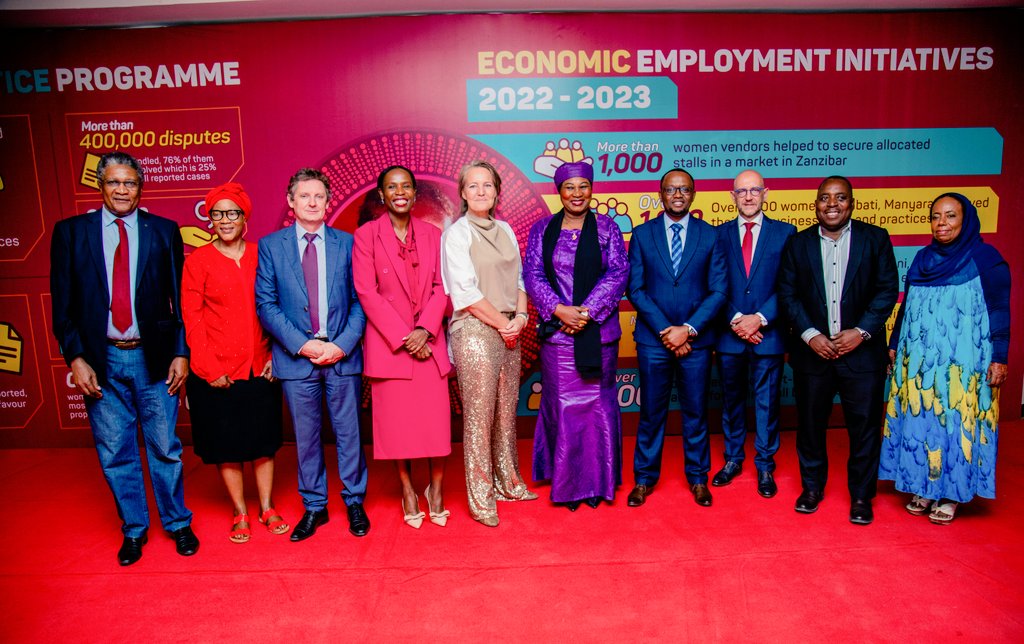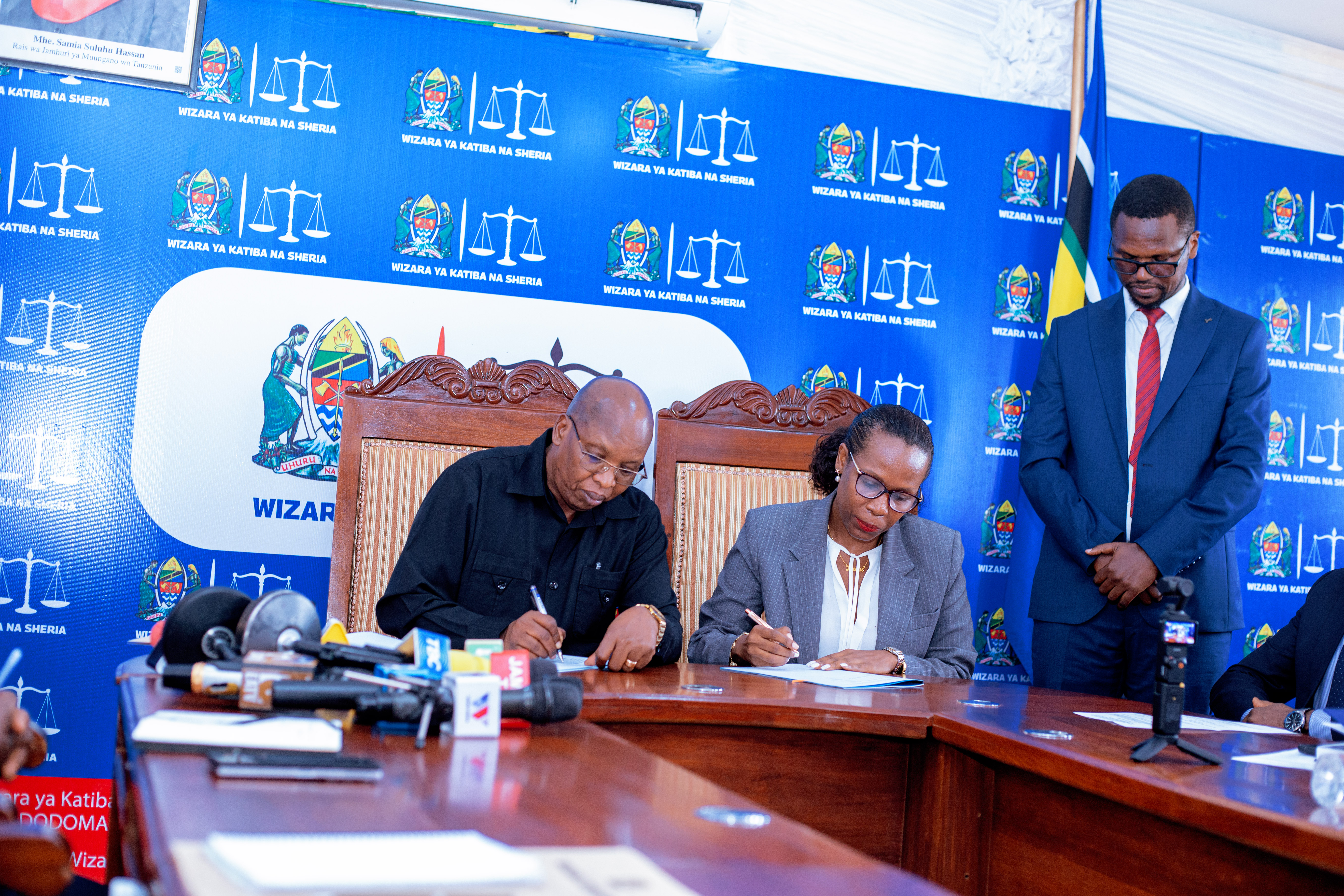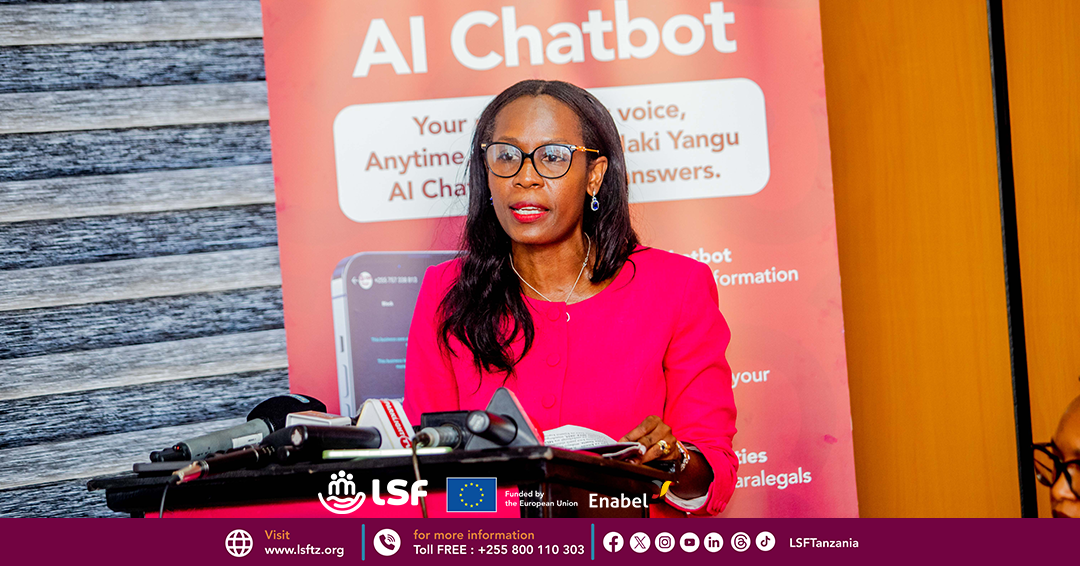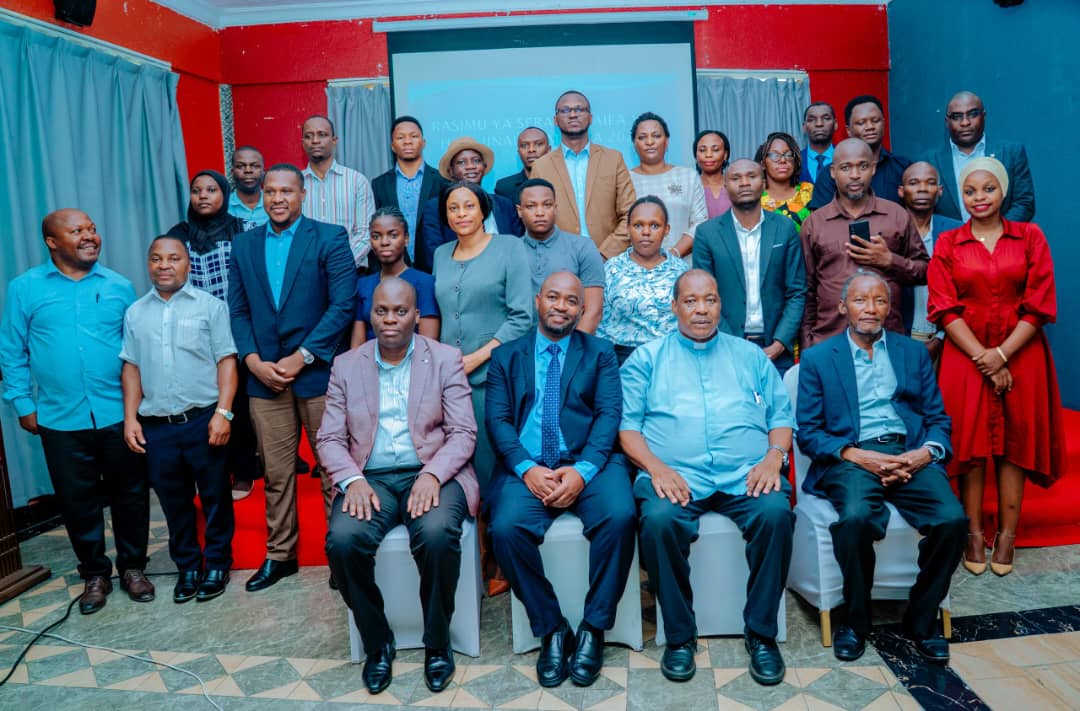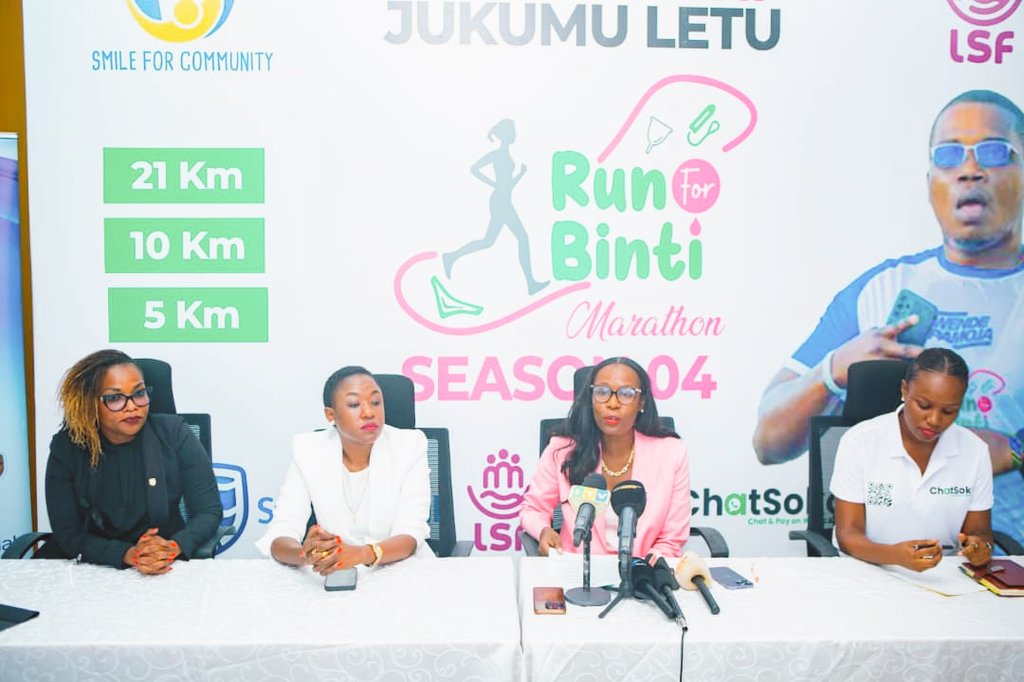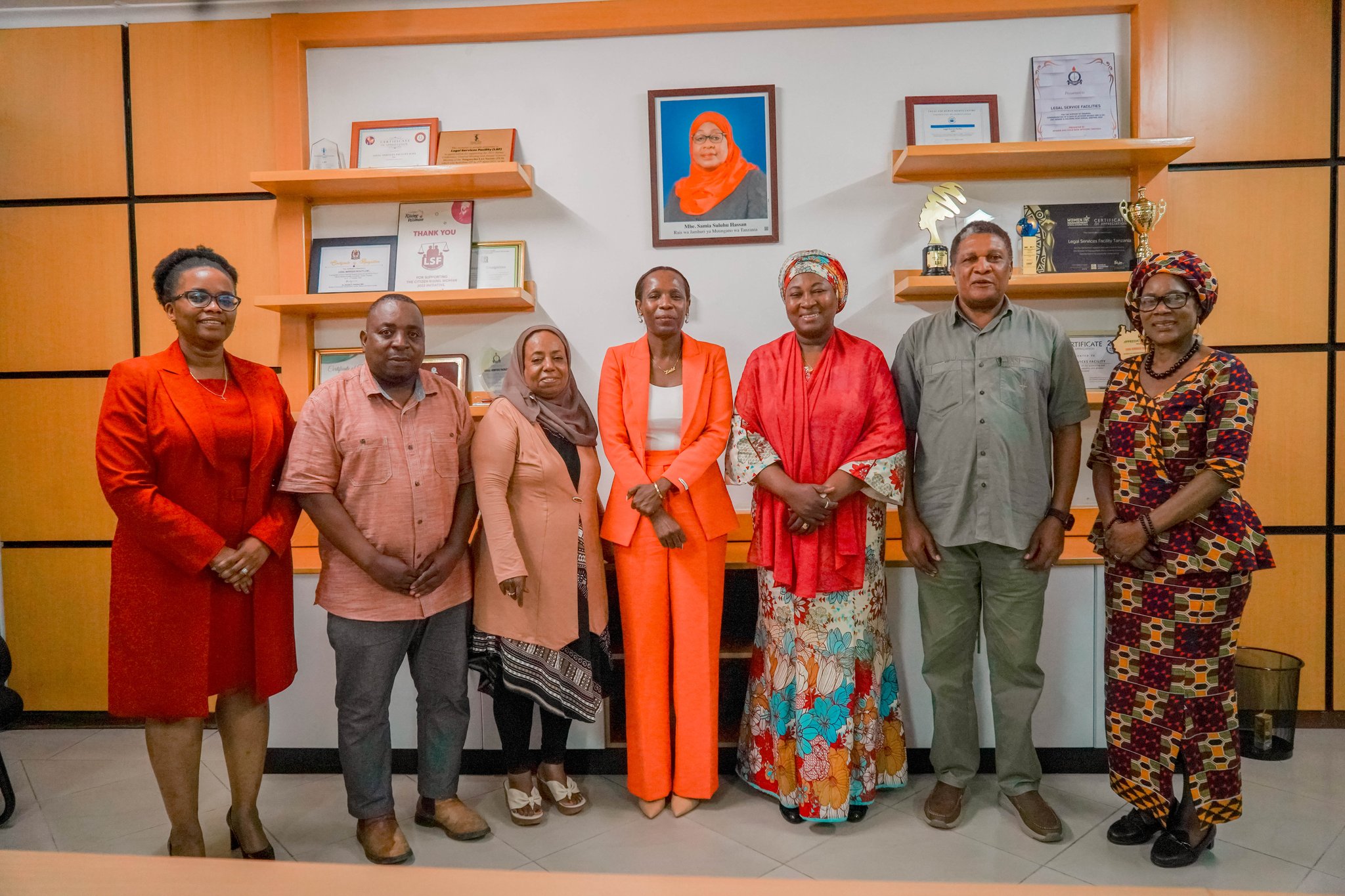A Decade of Impact by LSF and DANIDA.Royal Danish Embassy.
Dar es Salaam, [10-05-2024]
Over the past 12 years, the Legal Services Facility (LSF), with generous support from DANIDA,The Royal Danish Embassy has made significant strides in improving access to justice for women, girls, people with disabilities, and other marginalized communities across the country. This partnership has facilitated the provision of vital legal aid services, positively impacting millions of lives and fostering a more just and equitable society.
The Royal Danish Embassy in collaboration with the European Union and UKAid, now the FCDO, in a basket fund modality granted the LSF total grant of 33 million USD to implement the Access to Justice program across the country mainland and Zanzibar. Through the program, LSF hasthere have been successfully institutionalization of ized the legal aid sub-sector, establishing 184 paralegal organizations in each district council to ensure the affordability, availability, and accessibility of free legal aid services. The program reached over half of the country’s population, handling 426,349 civil and criminal cases with a resolution rate of 76.3%.
Through extensive legal education efforts, nearly 40 million people have been empowered to understand and use their rights, including over 10 million in the past year alone. The program has addressed key issues such as gender-based violence (GBV), child marriage, and teenage pregnancy, providing critical support to women and girls. Notably, LSF resolved 39% of 7,022 child marriage cases and 36% of 8,125 teenage pregnancy cases, and helped secure entitlements for 34,214 women, particularly in land and property rights.
LSF’s furthermore more the evidence-based policy advocacy implemented though this program has led to significant legislative achievements, including the enactment of the Legal Aid Acts of 2017 and 2018 and improvements in the Police Gender and Children’s Desks. These efforts have strengthened the legal framework to better protect and include marginalized communities.
Speaking about the challenges facing women and how the program aims to holistically address them, Executive Director Lulu Ng’wanakilala said, "It is without a doubt that women and girls are the most vulnerable, and their rights are infringed upon due to discriminatory social norms, values, and cultures, as well as a lack of social and economic gender inclusiveness. For this reason, our program is geared to address these issues."
Addressing gender economic inequalities, LSF has supported women in high-value agribusiness and business activities in mining areas by providing start-up capital and capacity building. In the past year, over 1,055 women in Babati, Manyara, 200 small-business women in Mirerani, Manyara, 103 women in Lindi, and 209 Maasai women in Longido, Arusha, have benefited from tailored economic empowerment projects. This is because women who are economically disempowered are more prone to GBV. Therefore, women's economic empowerment initiatives will not only eradicate poverty in our communities but also help women fight GBV.
Addressing gender economic inequalities, LSF has supported women in high-value agribusiness and business activities in mining areas, providing start-up capital and capacity building. In the past year, over 1,055 women in Babati, Manyara, 200 small-business women in Mirerani, Manyara, 103 women in Lindi, and 209 Maasai women in Longido, Arusha, have benefited from tailored economic empowerment projects.
